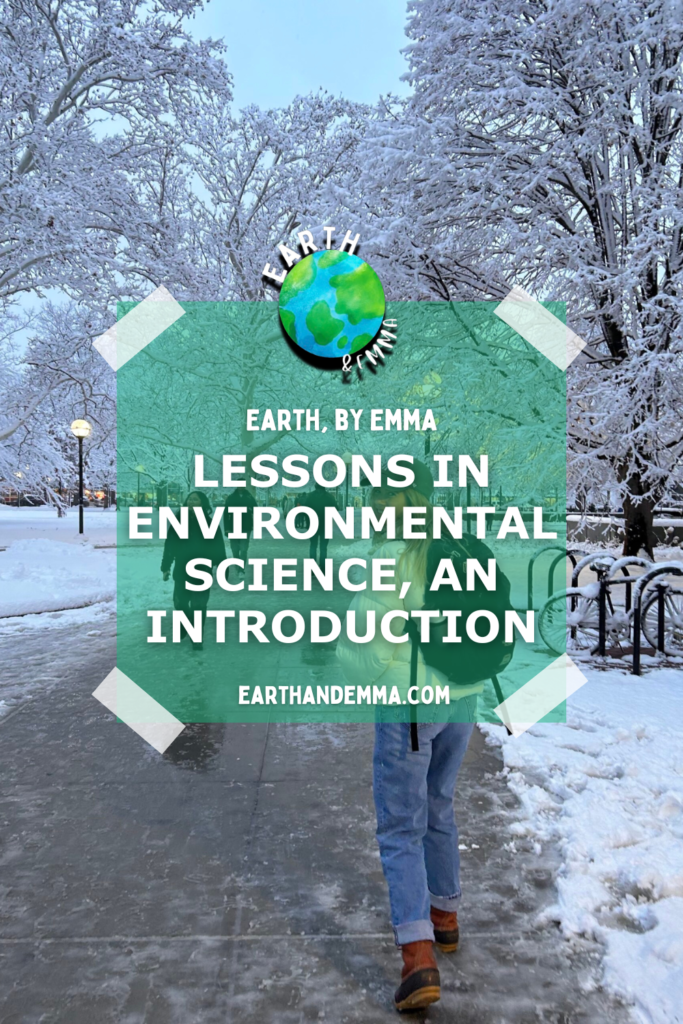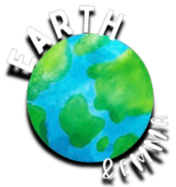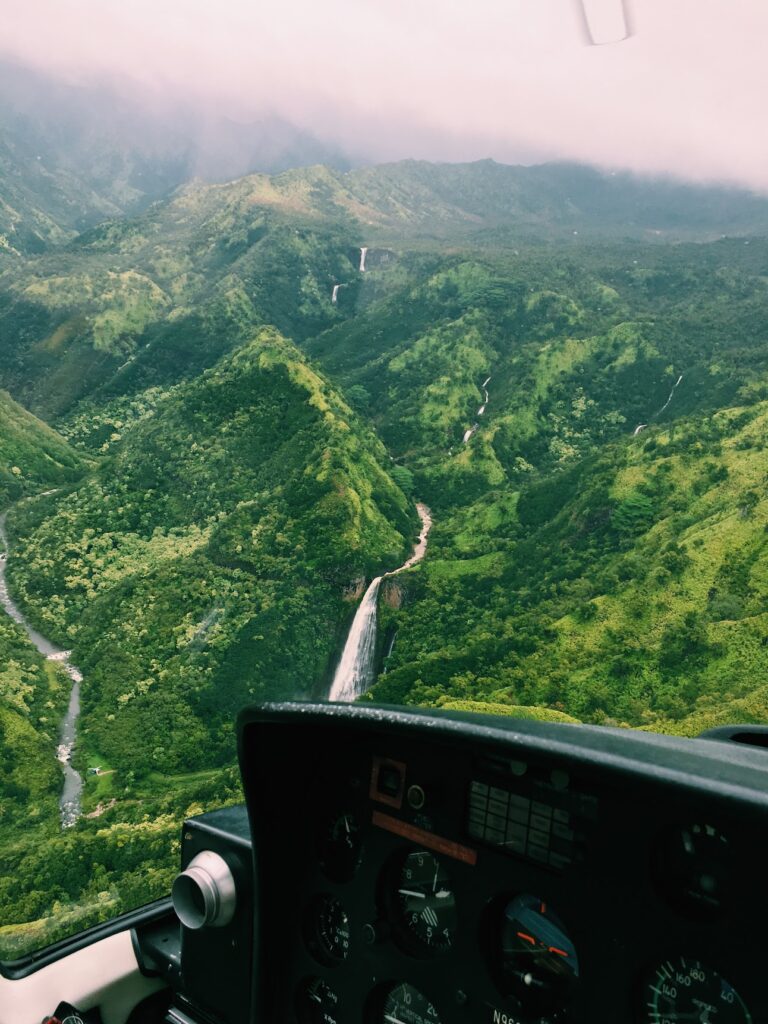
Welcome to “Earth, by Emma”! This corner of Earth & Emma is now home to topics in environmental science funneled into bite-size lessons that are exciting to learn about and easy to digest.
I graduated with a Bachelor of Science in Environmental Science from the University of Michigan in December 2023. From my studies and my continued research, I know a thing or two about environmental science and its subjects now grabbing attention in the news and business world. Our environment is one of my biggest passions, and I have been itching to share it on the blog, so I am really excited to launch this series.
What is Environmental Science?
Environmental science is the comprehensive study of our planet’s ecosystems, cycles, beings, and their interactions. Our planet, Earth, is a collection of physical, chemical, and biological components, and the increase in anthropogenic, or human, influence has greatly changed the interactions of these elements. Environmental science is an exciting field with many things to learn about. In addition to the value an education in the environment has in our current society, knowing and understanding how and why the things around us work the way they do, and how we as individuals fit into the comprehensive mold is an indescribable experience.
Earth & Us
Earth and our inhabitance of it are mind-boggling phenomena. Earth’s precise existence allows our inhabitance’s success, making our identity as Earthlings nothing short of extraordinary. Learning about all the elements that come together as our planet has furthered my appreciation for my existence and the things I share it with. Yet, with all of the things we have around us to admire, we have exploited our way to an anthropogenic-induced changing climate, threatening the future of our species’ existence on Earth. You’ll undoubtedly see “Save Our Planet” written on posters at climate rallies or in other environmental contexts, but that demand is a little misleading, and it should more accurately read “Save Biodiversity.”
Biodiversity is the variety of life on Earth, and it is facing the most immediate threat from climate change consequences; humans tend to forget that we are not the only or most important species on this planet, and we need to learn how to share. Our planet is okay, has been okay, and is going to be okay; the warming climate is natural, but the pace at which Earth is warming is not, and other forms of life have already paid the consequence of our actions, not to mention the inequity in human suffering that is already panning out. Ice ages on Earth operate in cycles; the last one ended 25,000 years ago, which means Earth is on track to warm until we reach the next interglacial period.
Why is Environmental Science Important?
The issue here is the anthropogenic influence, which has rapidly expedited this warming and is extinguishing biodiversity and the chances our species has at a future on Earth. The miracle conditions that allow us to exist and thrive on this planet are depleting, with only our actions to blame. With so many fields now intersecting with the environment, an understanding of environmental issues is becoming more important. Learning about the damage that has been done to many beautiful things on our planet can be depressing, but the sadness shouldn’t shy you away from empowering yourself with the tools to make a difference. My goal with “Earth, by Emma” is to help more people learn about environmental science, our influence as a species on the climate crisis, and in conjunction with my Living Sustainably section, how you as an individual can help.
I’ll be using the blog’s Instagram stories to poll interest on upcoming lesson topics, so make sure to follow here so you don’t miss out. I cannot wait to get this series rolling, and I’ll see you in the next lesson!



